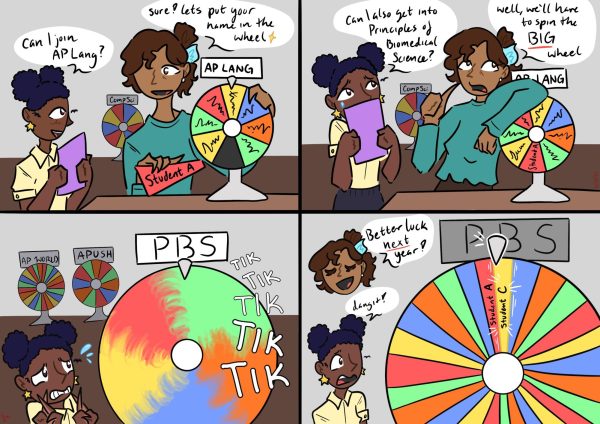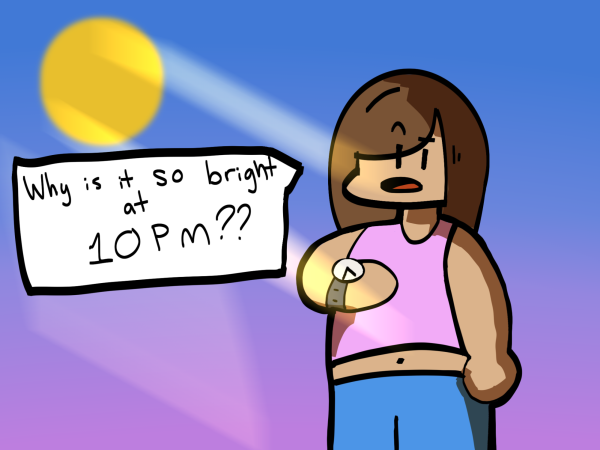Is Dr. Seuss a victim of cancel culture?
Opinion columns reflect the view of the staff writer.
“One Fish, Two Fish, Red Fish, Blue Fish”. “Green Eggs And Ham”. “The Cat In The Hat”. These are all cherished children’s books that have been brought to light for the past of their author, Theodor Seuss Geisel, or Dr. Seuss.
In understanding the “cancellation” of Dr. Seuss, a background check is needed. What exactly did Theodor Seuss Geisel do?
Geisel was born March 2, 1904, and after his Flit bug repellent ad campaigns he published his first children’s book in 1937. In his Flit advertisements, he depicted Africans as “savages, living in the tropics, dressed in grass skirts” and Arabs as “camel-riding nomads or sultans”.
Three years later, Dr. Seuss’s art and speech began to show racist undertones. His 1931 book “The Pocket Book of Boners” includes harmful racial stereotypes of Africans. One illustration from “The Pocket Book for Boners” depicts an African person, in caricature, serving King Solomon. The African has absurdly large, caricatured lips, and pitch-black skin, much like a minstrel show blackface performance (if you are interested in seeing more of the cartoons Seuss made, you can check out this link).
“The Pocket Book of Boners” was just the start of Geisel’s works as he moved on to making political cartoons in the newspaper. His drawings in these cartoons are the most disgusting I have ever seen.
Flipping through the never ending images of these horrible racist, xenophobic drawings in the political cartoons made my stomach turn. The fond memories of reading Dr. Seuss books with my mom as a kid had vanished.
Some of his first cartoons were about World War II. He advertised war bonds and his pro-war stance through illustrations that targeted Japanese people.
His cartoons portrayed harmful xenophobic tropes. He created cartoons that portrayed Japanese-Americans as a fifth column, ready to betray the United States and serve Emperor Hirohito. He also dabbled in what we might consider an early form of replacement theory, by depicting Japanese people as a group of alley cats trying to flood the United States.
According to Seuss’ biographer Richard H. Minear, Seuss even defended his anti-Japanese views during the war. Seuss wrote, “… right now, when the Japs are planting their hatchets in our skulls, it seems like a hell of a time for us to smile and warble: ‘Brothers!’ It is a rather flabby battle cry. If we want to win, we’ve got to kill Japs, whether it depresses John Haynes Holmes [an anti-war activist] or not. We can get palsy-walsy afterward with those that are left.”
Though some of Seuss’ cartoons were to make fun of some social standpoints, it does not justify the way he chose to combat racism and xenophobic views as he was contributing to them. Dr. Seuss’ cartoons condemning antisemitism and opposing American jingoism are laudable, but it reeks of hypocrisy when Seuss opposed racial hatred abroad yet condoned it at home. He also made cartoons advocating for desegregation of wartime industries, but continued to draw Africans in caricature.
Geisel’s political cartoons went hand-in-hand with his “Flit” advertisement cartoons. Flit was mosquito repellent and unlike his political cartoons, the illustrations were not to make fun of anything. They were simply just his racist drawings.
After Dr. Seuss’ political cartoon career, he published “Horton Hears a Who!” in 1954, as an attempt of redemption for his racist remarks. He dedicated the book to “My Great Friend, Mitsugi Nakamura of Kyoto, Japan”.
So, is Dr. Seuss a victim of cancel culture? I don’t think he’s a victim of anything. I think that it’s a good thing that the youth who grew up with Dr. Seuss is learning about his past. If Dr. Seuss being labeled as “cancelled” helps people acknowledge his controversial track record then so be it. The problem with “cancel culture” is that the definition of the word has been stretched so far it has little meaning.
Cancel culture ranges from jokes to serious topics. The term cancelled is a very loose term. If your friend steals your food you might joke around and say they’re cancelled. Describing Dr. Seuss as “cancelled” does not have the serious tone that is needed.
Cancel culture is temporary, fleeting hatred, soon to be replaced by the next controversy. In some situations, cancellation passes by quickly. Categorizing Dr. Seuss in the bubble of cancel culture can diminish the problematic things he has done.
Dr. Seuss had a lot of influence on the world and youth.The cartoons he drew are shocking and unsettling. It is very difficult to see Dr. Seuss in a positive light even if he had regrets. Dr. Seuss is not a product of cancel culture, but just another one of America’s original artists with the same views of non-Whites as his peers.

Senior Asiyah Ally is a News Editor for The Californian. This is her fourth year in the newspaper and she’s looking forward to her last year of high...

